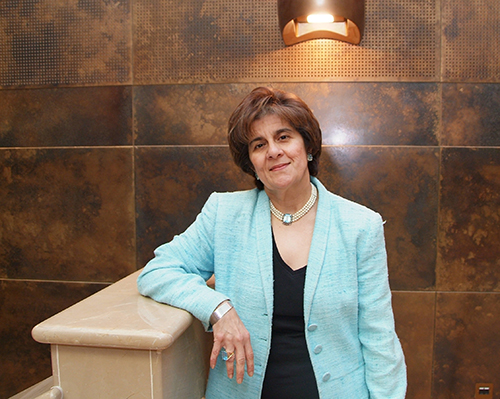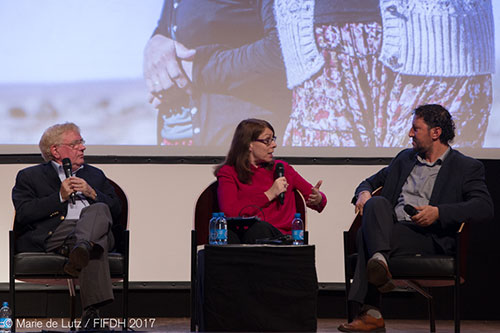Guest Blogs
Knowitall.ch often invites local experts in their field to contribute to their own blogs on our site. This means not only you will benefit from the useful recommendations that we make on our News pages, but you can also profit from some of the great advice and tips that these experts have to make on their favorite subjects. Whilst each of these bloggers has been recommended to us at some point during the evolution of Know-it-all passport and knowitall.ch, obviously we are not able to test out all the suggestions they make on their blogs, nor do we necessarily agree with all their opinions. So if you do find one of their tips useful (or not!), do let us know!
To make these blogs more accessible to you, we have now decided to group them altogether in one section, entitled Guest Blogs, accessible from our main menu bar. We will also post the most recent blogs on the home page of our site in the right hand column.
We are still building up this area of the site, and are looking for bloggers in a number of sections, including Your Home, Travel, and Leisure, so if you feel you have a useful contribution to make in either of these areas, and have the time to submit blog entries approximately every month, then please get in touch!

By Micaela Crespo, Expat Lifehacks
Yes, I’ve come to terms with the fact that we cannot rely on our families to take care of simple logistic tasks. We can’t count on our expat friends and connections in our host country, since they’re probably in the same situation than us. I therefore use planning, automation and delegation to take care of these things.
And yet, I always make a small group of friends every time we move to a new place.
And that’s because there are two things that I’ll never be able to obtain from systems and planning: peace of mind and human connection.
When I became a working expat mum in the UK with dad travelling 2 weeks a month, the nights were terrifying. I would dwell in bed reeling over the things that could happen while I was alone. What would I do if anything happened during the night?
When I told a friend I made about my fears, she automatically offered to be my emergency contact and told me I could call her at any time.
This was priceless to me. I had recovered my peace of mind, and I could now sleep again. I felt less alone.
I never had to call her in the middle of the night – fortunately – but I am still extremely grateful for her availability and friendship. Other mums offered the same over time, when I told them what my life looked like.
This gave me a deep sense of human connection and community, even outside of my birth country and family.

By Sunita Sehmi, Walk The Talk
Pinky Lilani CBE DL was born in Calcutta and came to the UK after her marriage.
She is the founder and chairman of ’The Asian Women of Achievement Awards’, ‘The Women of the Future Award’, ‘The Ambassadors’ Programme’ and ‘The Global Empowerment Award’.
As the Founder and Chairman of the annual Asian Women of Achievement Awards, Pinky’s accolades have celebrated the tremendous contribution of Asian women to British business and public life for the past 18 years! Pinky is also the creator of the Women of the Future portfolio - Britain’s most exciting programme for successful young women. It is Pinky’s vision that through these initiatives, women can help each other through building relationships and nurturing the talents of the next generation.
Pinky’s other business, Spice Magic, involves cookery lessons as part of corporate team building. She discovered a passion and soon published a cookbook, Spice Magic, which endeavours to decipher the intricacy of Indian food. Furthermore, Pinky holds cookery classes, she has also consulted for brands such as Sharwood’s and contributes to the development of sauces for Tesco and other supermarkets. From her self-taught experience, the creation of her book and her much-loved cookery demos she built her company 'Spice Magic’.

For this blog, I have invited HealthFirst’s Midwife and mother of four, Polly Pupulin, to give us her 5 top tips for expectant mothers....
By Polly Pupulin, Midwife, www.healthfirst.ch
I love midwifery and have done since I first started in 2001. Part of my work is the privilege to introduce parents to the amazing ‘dance’ that happens between the baby and mother during pregnancy and labour during a Birth Preparation Course.
If I could personally give five tips to every expectant parent here in Switzerland, this is what I would say:
1. You have a choice where and how you birth your baby. The birth is not just a medical procedure but involves many other factors such as your personal preferences, your cultural expectations, your previous experiences of childbirth and what both you and your partner believe birth is all about.
2. The best form of ‘natural’ pain relief is a supportive birth partner and a compassionate midwife in whom you have confidence. You may have heard of epidurals – and they definitely have their place – but there are many compatible and harmonising pain relief options to learn about.
3. The labour process is a blend of you and your baby working together. Both of you have a role and will be communicating together. Knowing this may calm you and help you feel part of a loving team.
4. Yes, your life will change when your baby is born. However everyone reacts and adjusts differently and you won’t know until the challenge is there. So welcome to the journey – and enjoy it!
5. You may be away from your normal family support network in your home country but you are not alone. Create or join a new group of like-minded parents and parents-to-be here in your country of residence – in person and online. Having this support within your own community is proven to reduce your risk of post-natal depression.

By Claire Doole, Claire Doole Communications
There can’t be many subjects that provoke more heated debate than the Israeli/Palestinian conflict. So when the founder of the Geneva Human Rights Film Festival (http://www.fifdh.org/site/en/home) asked me to moderate a debate on the subject last week, I knew I had my work cut out.
As a former BBC journalist, I follow current affairs but I am not a subject expert. Yet at the Festival I would have a room full of subject experts. There are large Jewish and Arab communities in Geneva and many organisations that work towards ending the conflict.
Preparation was crucial if I was not to make a diplomatic faux pas and do justice to the speakers: Israeli professor and peace activist, Daniel Bar-Tal, founder of Stop Israel Save the Occupation (http://www.siso.org.il) and Palestinian peace activist, Ali Abu Awwad, founder of the Tarir/Change Movement and Roots initiative (http://www.friendsofroots.net/the-people.html).

by Gareth Jefferies, Alpine Property
I don't suppose living in the Alps is that great from an Ecological perspective. Though as time goes on we are learning (actually, being slowly forced) to reduce our carbon footprint on the environment. Not many people think about this though, even with the government's attempts to help (see the DPE labels). I've written about it in the past too (An Eco-Chalet in the Alps). Despite this I did have a customer say to me recently "I'm only interested in building a new place...for eco reasons", maybe as time goes on it will happen more often? Though I'm not sure that building from scratch is that eco-friendly, despite the fact the heating bills will be less. The carbon footprint from the new materials might well outweigh the long-term benefits.
I've been living in my house for 14 years and have only got around to upgrading the last remaining single glazed windows this winter. It's never been a priority for me as I'm well aware that the pay back won't happen for 20 or more years. I took the opportunity to take some infrared pictures to show the difference before and after. It was a bit of an eye opener. Not the difference the windows made but how much heat my house is giving off!
The first photo shows my house on a cold day (-7C), the ground floor is 60cm of solid (stone and rubble) construction with no insulation. The upstairs of my property was insulated when it was renovated 30 years ago. They use hollow bricks with a small amount of mineral wool insulation stuffed between them. There is no vapour barrier and externally the walls are wood clad. The shocking thing here is the walls are 10C. The single-glazed windows are obvious on the picture and are only slightly colder (15C) than the inside temperate at the time (19C).






